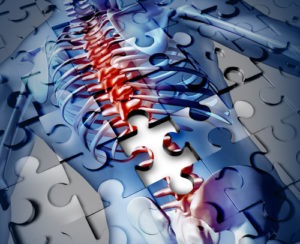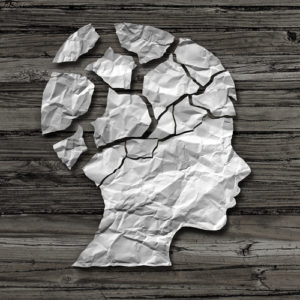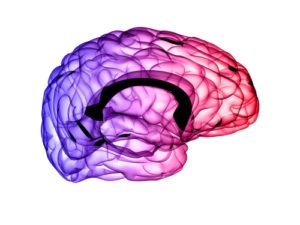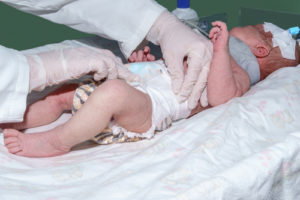Category: Medical Negligence

You can suffer a spinal cord injury as a result of medical malpractice. Depending on the severity of the damage and the level of your spine, you might not be able to walk again, use your arms, or even breathe on your own. How Medical Malpractice Can Cause a Spinal Cord Injury When you receive
Read More
The brain can sustain damage as a result of medical malpractice. Some minor incidents only cause temporary disruption to the brain. A significant event can leave the patient with devastating harm to the brain and change their life forever. Types of Brain Injuries Caused by Medical Malpractice There are several ways you can suffer a
Read More
Traumatic brain injuries, known as TBIs, are a type of brain injury that can lead to brain damage. All TBIs are brain injuries, but not all brain injuries occur because of traumatic events. There are other types of brain damage that can leave the person with temporary or permanent impairments. He or she may require
Read More
According to Johns Hopkins Medicine, there are four major types of infant skull fractures caused by medical malpractice, including: Linear skull fractures Depressed skull fractures Diastatic skull fractures Basilar skull fractures Each of these skull fractures can affect an infant differently and may require a unique, individualized plan for monitoring and treatment. If your child
Read More
It is difficult to track how many patients die in treatment centers during alcohol detoxification in the United States. We do, however, know there are thousands of treatment facilities nationwide that serve those hoping to break their dependence on drugs or alcohol. This number includes the treatment centers where more than 3,300 people died during
Read More
Yes, you can sue for malpractice if your loved one dies from withdrawal or detoxification in a treatment center. Treatment center care providers must monitor patients’ withdrawal symptoms during detoxification. If a patient experiences complications, they may need medication, additional medical support, or emergency care. In some cases, pre-existing mental, emotional, or physical health care
Read More
Alcohol poisoning – sometimes called alcohol overdose – can be deadly. Without prompt diagnosis and treatment, a person who has too much alcohol in their system can experience a myriad of issues as body functions slow, and can lead to serious problems with vital functions including breathing, heart rate, and body temperature regulation. In most cases,
Read More
Alcohol detoxification is the process of removing alcohol from someone’s body. For people who are heavy drinkers, alcohol detox can be life-threatening. They can experience serious alcohol withdrawal symptoms, so it is dangerous for someone to try to detox alone. It is difficult to find an exact number of deaths due to improper alcohol detoxification.
Read More
According to Psychology Today, improperly detoxing from alcohol may kill you. Improperly detoxing from anything could kill you. Alcohol withdrawal is a serious and potentially life-threatening condition. Symptoms can develop within a few hours or a few days after a person stops drinking. The safest method of detoxing from alcohol for people who are long-term,
Read More
If you or someone you know is exhibiting signs of alcohol poisoning, it is imperative you recognize the symptoms and act right away. Severe impairment, confusion, vomiting, and other symptoms may be evident before you lose consciousness, or you may identify them in a friend who has been drinking. If you were binge drinking, drinking
Read More
Alcohol withdrawal can be extremely dangerous and even deadly. Many people do not view quitting the regular, long-term use of alcohol as difficult or deadly as quitting other addictive drugs cold turkey, but it can be just as deadly — or even more so in some cases. It is important that all patients and their
Read More
If your child was injured during or shortly after childbirth, you could have grounds for a medical malpractice lawsuit for a birth injury. A lawyer from Newsome | Melton can sit down with you and look at the circumstances of your child’s injury, then let you know if you have a strong case and how
Read More
You should file a lawsuit as quickly as possible after a birth injury because you do have a limited time to do so. The clock begins ticking when the injury occurs. If you wait too long, you will not be able to file for medical malpractice. The statute of limitations establishes how long you can
Read More
Some patients with locked-in syndrome retain a sense of touch despite their global paralysis and inability to communicate verbally. Others, however, lose all sensory function in their torso and lower body. In incomplete injuries, patients may experience sensory losses on only half their body or otherwise retain only a partial sense of touch. When a
Read More
You cannot be physically functional with an incomplete form of locked-in syndrome. Most locked-in syndrome patients never regain mobility in their face, speech, or other body movements. However, there have been rare cases where an individual improves if the underlying cause is treated. For example, shrinking a tumor that caused the disorder could increase functionality.Cognitively,
Read More
Cognitive functions are not always impaired by locked-in syndrome. Many locked-in syndrome patients can have normal cognitive functions such as reasoning and memory. He or she can hear, think, and see but are paralyzed except for limited eye movements. Each case is unique, but for the most part, locked-in syndrome victims keep their cognitive functions.
Read More
A person with locked-in syndrome can communicate, but it is exceedingly difficult, as they cannot talk or move any part of their body other than their eyes. To convey their thoughts or ideas, they must rely on eye movement patterns, and others must learn to read these patterns and understand them. This process can be
Read More
Because locked-in syndrome affects all voluntary muscles, including those that control breathing, pulmonary complications may be a concern for patients. Upon developing the condition, many patients must undergo a tracheotomy to have a breathing tube inserted, as they lack the muscle movement even to take a breath on their own. The constant immobilization caused by
Read More
You can receive compensation for a birth injury that affects the mother. When a doctor’s negligence, wrongful action, or lack of action during childbirth results in injuries to the child and/or mother, it is medical malpractice. As the injured party, and as the parent of the other injured party, you have the right to pursue
Read More
If you went to the hospital for an illness or injury and emerged sicker than when you arrived, you may be able to file a medical malpractice lawsuit and recover damages from a number of parties. The critical question is whether your worsening conditions resulted from a doctor’s or another hospital employee’s negligence. A medical
Read More
The Health Insurance Portability and Accountability Act (HIPAA) sets rules on how doctors, hospitals, insurance companies, and other healthcare providers must handle your private medical information. When a provider violates HIPAA privacy and security laws by carelessly handling your sensitive information, you might be eligible to pursue legal action against them. A HIPAA claim is
Read More
The difference between locked-in syndrome and a vegetative state is that a person with locked-in syndrome retains their full mental faculties, whereas a person in a vegetative state does not. However, because locked-in syndrome causes the loss of all physical capabilities and all muscle movement other than the eyes, people can easily mistake it for
Read More
Locked-in syndrome affects the pons, an area of the brain stem that helps transmit signals between the brain and spinal cord. The pons plays a significant role in muscle movement. When you a muscle, the signal starts in your brain and passes through the pons to your spinal cord, which relays it to the muscle.
Read More
The main symptom of locked-in syndrome is paralysis of every voluntary muscle in one’s body except those controlling eye movement. It is the equivalent of having quadriplegia along with no movement in the facial muscles, diaphragm, or intercostal muscles, making it impossible to swallow or even breathe without assistance. Locked-in syndrome does not, however, affect
Read More
Locked-in syndrome is not immediately fatal on its own. But it generally leads to medical complications that shorten the lives of affected persons. According to a study published in the Orphanet Journal of Rare Diseases (OJRD), even a locked-in syndrome patient who is medically stable has only a 40% chance of living another 20 years,
Read MoreMedical Negligence
